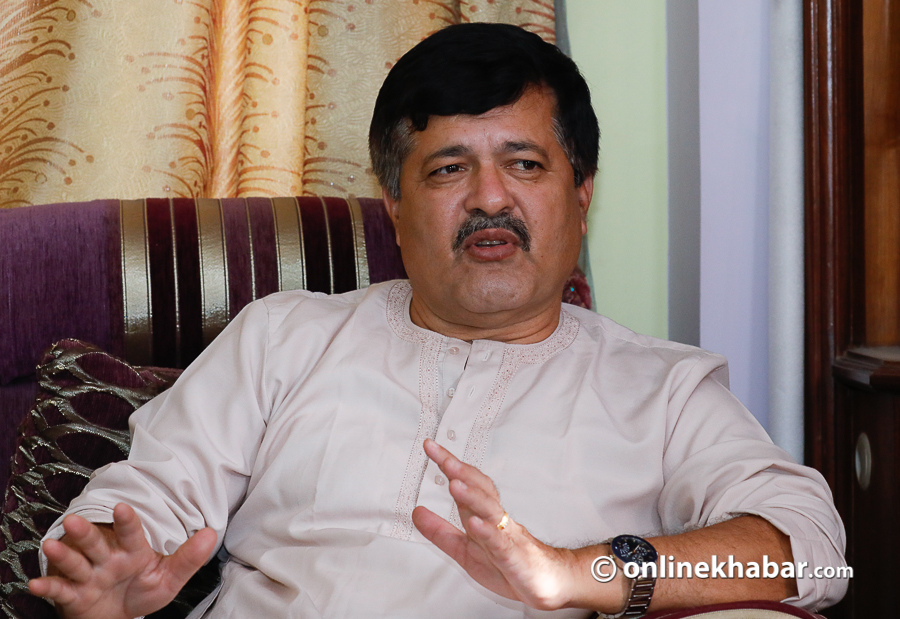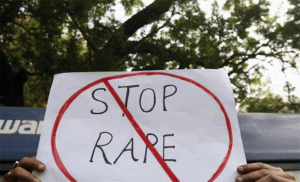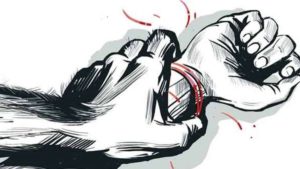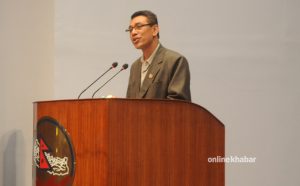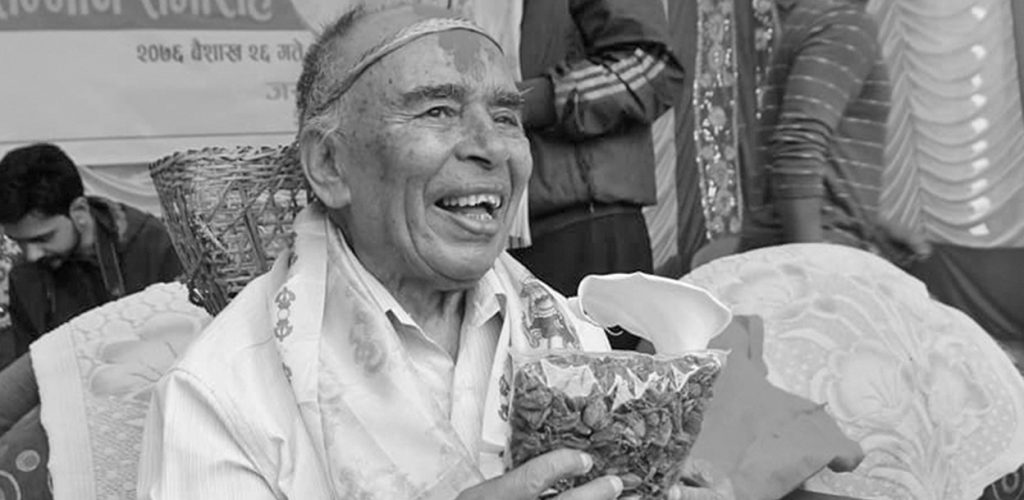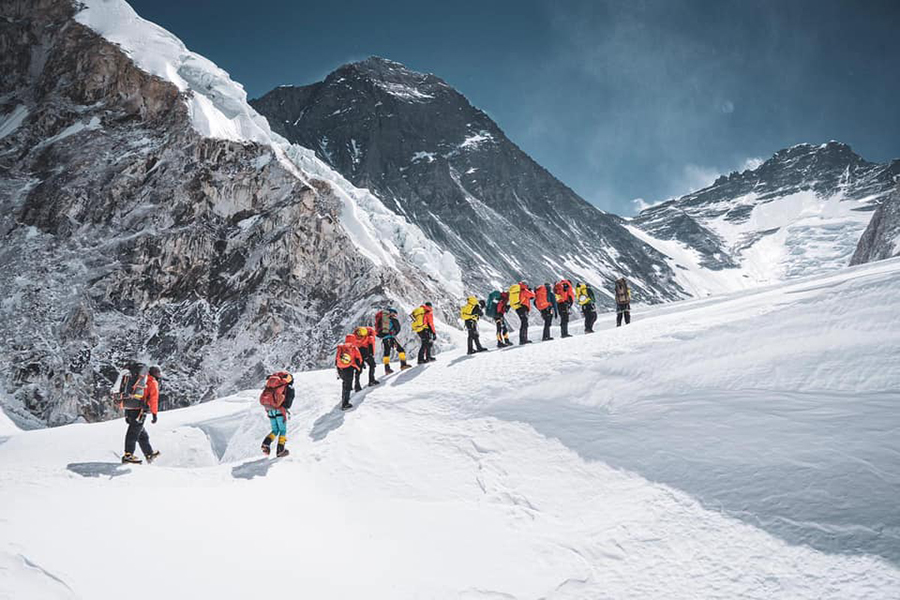The number of rape cases and murders after rapes has skyrocketed of late. As per the Nepal Police records, at least six children and women are raped every day. Meanwhile, many of the cases have not reached the legal prosecution. Media have reported community leaders including local people’s representatives are involved in settling the cases through mediation, barring them to reach the court.
Angered by such atrocities, many lawmakers have demanded severer punishments including the death penalty and penis removal. In this context, Onlinekhabar recently talked to Attorney General Agni Prasad Kharel.
Excerpts:
As the number of rape cases has increased in recent times, female lawmakers from almost all parties have started advocating for the death penalty or penis removal. Has that situation already come?
No doubt that unimaginable atrocities and horrific crimes are being committed; they have shaken us all up. Criminals using new technology are challenging the modern state system.
As the attorney general, I have also felt that deeply. Therefore, I have also tried to take the necessary steps within my constitutional and legal jurisdiction.
There is a law to punish rapists. The provisions introduced by the Criminal Code that came into effect two years ago are even stricter than those of the past. However, with the surge in the cases, the question if this legal remedy is enough for punishing the culprits has arisen in society.
There is the provision of life imprisonment for murder after rape. This punishment is not like the previous provision of the life sentence with the confiscation of all properties. This provision means staying in prison for the entire life. Courts have already given such sentences on rape cases of Dhanusha and Pokhara two years ago.
Likewise, penalties for rape have also increased. Still, why isn’t this crime declining? This aspect is very significant to look at. Is it appropriate to punish the rapist with the death penalty or castration? Since the process of drafting the democratic constitution after people’s movement of 1990, a constitutional guarantee has been made that no law will be made to impose the death penalty and no person will be given the death penalty.
According to that, we have signed many international treaties and conventions, and human rights treaties and protocols. As a party to these treaties, we have assured the international community that we will not introduce any legal provisions for the death penalty. This is our international commitment. The death penalty does not appear in Nepal’s international image. The death penalty is not the solution to every problem.
Although India has the provision of the death penalty for rape, incidents of rape, gang rape, and murder after rape have not been over there. Why has not the crime stopped or declined there despite having this provision of the death penalty?
On the other hand, there is peace and security even in countries without the provision of the death penalty. Looking at the facts and figures from the perspective of criminal law, the number of criminal cases in those countries seems to be small. Therefore, it should be seriously discussed to find out whether the death penalty is the appropriate remedy for rape.
We are in a civilised democratic state system of the 21st century. It is believed that we can and should control crime without the death penalty. As the Attorney General of Nepal, I cannot discuss or debate the issues that are not in the constitution and law.
I cannot take the side of the death penalty even personally. Speaking in accordance with the constitution and the law, it should be said that we do not seem to be in a position to argue in favour of the death penalty as there is no such provision in the constitution and law. Also, this penalty is being rejected by many countries in modern democracies.
But, many lawmakers are seen in the support of the death penalty as justice for rape survivors is not guaranteed by the existing systems. What do you have to say?
How much have we talked about and publicised existing laws? I keep on issuing instructions after analysing the media coverage of such issues. But, how many news stories have you written about the similar cases that have reached the courts and the courts have passed verdicts on them? Usually, when the news reports of 20 such incidents get published, even the news stories about 10 verdicts do not get covered. By all these, I mean that there has been very less publicity/awareness about the law.

I have asked the Home Minister to publicise this matter in a strong manner. Publicity campaigns should be carried out to advance the healing system.
Likewise, this should be included in the curriculum so as to make young children understand this matter. On the other hand, making physical contact (without being careful) in front of children may have a negative effect on child psychology. I think parents should consider this aspect seriously.
Nirmala Pant, 13, from Kanchanpur was killed after rape. There are many such cases. Does the situation that the justice being delayed and the investigation being influenced by many also strengthen the argument of the proponents of barbaric punishments?
The investigation into Nirmala Pant’s case is still underway. I am confident that the government will soon give justice to Nirmala and her family. But, there is something wrong with what we have written, what we have said, and what we have done. I don’t talk much about it. It is up to the press to decide how far it should go in the matter of the crime investigation. There is also the matter of informing.
But, don’t you feel that the law is insufficient?
If the law is insufficient, we will make it sufficient just like in the case of acid attacks. By bringing an ordinance on the acid attack, we made the provision for the severe punishments. Also, it is seen that some of the issues are not clearly mentioned in the law just as the rape cases being settled by the Panchayat (an informal group of community leaders).
Even in crimes like rape, it is seen that the leaders of society, community leaders and people’s representatives are trying to reach community mediation. Recently, two girls in Bajhang and Saptari have died as the locals made efforts for community mediation. If community mediation was not done, the life of both girls would have been saved.
Villagers should not settle cases such as rape in their own community. This does not fall within the purview of criminal law. We are continuously discussing this.
Does this mean that additional laws should be introduced or existing laws need to be amended to address the intervention of the Panchayat in such cases?
Discussions are underway with concerned agencies and bodies that this (community interference in serious criminal cases) should be considered a separate crime. However, we are yet to reach the conclusion. Giving money and land, making community settlements, hiding crime and additional pain to the victim are practised in the name of Panchayat.
If there comes a situation when we have to work on it immediately, we will go for the same kind of treatment.
It seems some victims have been compelled to go for community mediation as it is difficult to get justice. In order to get justice by filing the case, one has to go through a process from police investigation to court verdict. Doesn’t this process seem too long?
For this, we have been trying to go for continuous hearings. We have already issued instructions on this twice. Going that way, justice is not far away.
Likewise, a victim should keep repeating she was raped something that she never wants to remember in her statement to the police and the court. Can’t this process be simpler?
A few days ago only, I met some girls and women. They also raised the same issue. Usually, where there is a crime, there is pain. In this situation, if you are not in a position to file a complaint, it is possible for someone to file a complaint on your behalf. After the complaint is registered, the police enquire you as it is essential for investigation.
For the sake of their justice, the victim has to speak. The victim has to put her case to the investigating or prosecuting body. This is for her own benefit.
Shouldn’t a psychologist be made available considering the victim’s psychology until the issue is resolved? If the government takes the responsibility of the treatment and legal battle, even if the Panchayat tries to reconcile the case, the victim could oppose the Panchayat and take themselves to the court.
Protecting the victim and witness, two major carts in any legal battle, is the responsibility of the state. They need to be protected to ensure peace.
Considering the persistent increase in such cases, it is natural for the number of victims to rise. However, there stands a question: is it possible to provide counselling in all cases?
On the other hand, there may be a need for counselling in some heinous cases. But I don’t think all the problems can be solved at once.
A few numbers of acid attack victims had made it possible for the state to make new arrangements for them regarding both physical and mental treatment.
Muskan Khatun, a schoolchild being the victim of this vicious crime, now has to apply ointment costing thousands five times a day. When I asked if she did not feel like crying when she saw her face, her reply with a smile could inspire anyone. She said, “If I cry, the criminal will laugh. And I don’t want that.”

The system punishes rapists. But, what do the victims get after being tormented by the criminals? Shouldn’t the state provide adequate compensation to them?
We live in a welfare state adopting a democratic system, where each voice is heard and addressed. It tries to heal those wounds of every victim of criminal offences. The major and foremost task of the government is to grant justice.
Laws on the rights, compensation and reparation for crime victims are being made. The state has already ordered to pay Rs 200,000 compensation to Pavitra Karki, an acid attack survivor.
In Nawalparasi, the perpetrator ran away raping a minor, but he was arrested a year later. He would have given a statement the next day, but he hanged himself at night. All the evidence were against the perpetrator. However, his statement was not ready. And, our law had the provision to provide the culprit’s property as compensation if the victim is proven raped.
Crime dies with its culprit’s death; that is a principle. The case against the deceased cannot proceed any further. The case is settled in the eyes of the law. But, it does not imply that justice is served. The question if the justice died along with the death of the accused remains.
So, we have a long discussion with 20-25 people on this and wrote all details. Then, we requested the chief secretary to inform the prime minister of it. As this is not in general practice, I requested the PM to look through this new case. I suggested giving a big amount of compensation. However, the bureaucracy did not agree and sent Rs 100,000 only. Later, the PM reconciling all the things decided to pay Rs 500,000 in compensation.
But, there are many cases in which the survivors have been neglected. For example, ‘Godamchaur Ka’, raped three years ago, is still undergoing treatment in a private hospital, but she is unable to pay her bills. Shouldn’t the government bear the cost of treatment for rape as in acid attack?
Now, the law has set up some funds for such survivors. There is also a provision for compensation. But, the number of cases is big.
In an informal conversation, some former attorneys general said police investigation process could not improve in Nepal. Is there really a need to improve the investigation process?
I also had expressed my opinion in a recent meeting with the home minister about the police investigation. This is a part of the advice that the former attorneys general have been giving me. They say the investigative body within the Nepal Police has to be developed as a separate entity, and there should be a separate department with dedicated staff. That is to say, today’s investigators should not be mobilised as traffic police tomorrow.
Right people at the right place… It should be the principle. The person working in criminal cases keeps in mind around 50 per cent of the facts related to the incident already in chronological order and seeks evidence accordingly. New recruits are not persistent and considerate as experienced people. Therefore, there should be a separate body for crime investigation within the Nepal Police. Let’s create an environment to work independently.
Is there any homework being done for this?
As the attorney general, I have told the home minister and the home secretary. I have even repeatedly called the IGP. I have also raised this issue at a conference of police and government officials.
A strong body should be set up within the police for criminal investigation and there, works should be done to give opportunities to the capable people.
To address the issue of the interference of community people in rape issues, many are lobbying that a new law or amendment is mandatory. What is the discussion in it? Is there any possibility that an ordinance is issued in this regard as in the case of acid attacks?
It is not my part to speak regarding the ordinance. My job is to tell the PM what the need it. I have already said that it is a crime to cover another crime and protect culprits. Covering and keeping a person who committed such a hideous act in society as nothing happened or acting oblivious is to purify the rapist. This is no doubt a crime in itself .
However, law-making is not a matter of impulse. It must be logical and natural.
Society’s attention has been drawn to community mediation in rape cases as such acts hurt the survivors’ self-esteem forever. It seems the public opines that it should be punished by bringing it under the purview of criminal law. It is up to the government to decide how it introduces a law in this regard.
Is it possible to release rape convicts on bail?
Either they should be released on a date or should be locked up. Serious cases should not be handled in the same way as others.
Many cases fail as survivors and witnesses turn hostile in court. The reason for requesting a continuous hearing is that there is no room for fake statements.



